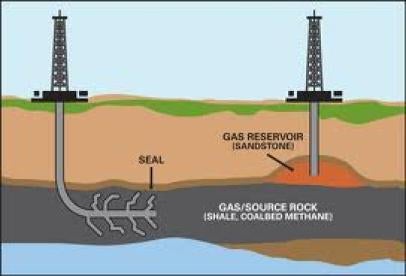On March 20, 2015, the United States Department of the Interior, Bureau of Land Management (BLM) issued final regulations addressing hydraulic fracturing “as a much-needed complement to existing regulations designed to ensure the environmentally responsible development of oil and gas resources on Federal and Indian lands.” 80 Fed. Reg. 16128 (March 26, 2015) The regulations, which had been underway since 2010 and will become effective on June 24, 2015, were immediately challenged by industry and states and criticized by several NGO’s.
Secretary of the Interior Sally Jewell explained “the rule will include measures to protect our nation’s ground water, requiring operators to construct sound wells, to disclose the chemicals they use and to safely recover and handle fluids used in the process.” The BLM summarized the key changes to the final rule as follows:
Key changes to the final rule include the allowable use of an expanded set of cement evaluation tools to help ensure that usable water zones have been isolated and protected from contamination, replacement of the “type well” concept to demonstrate well integrity with a requirement to demonstrate well integrity for all wells, more stringent requirements related to claims of trade secrets exempt from disclosure, more protective requirements to ensure that fluids recovered during hydraulic fracturing operations are contained, additional disclosure and public availability of information about each hydraulic fracturing operation, and revised records retention requirements to ensure that records of chemicals used in hydraulic fracturing operations are retained for the life of the well. The final rule also provides opportunities for the BLM to coordinate standards and processes with individual states and tribes to reduce administrative costs and to improve efficiency. 80 Fed. Reg. 16128 (March 26, 2015).
Two industry groups, Independent Petroleum Association of America and Western Energy Alliance, filed within an hour of issuance of the rule a Petition for Review of Final Agency Action, arguing “BLM’s rulemaking represents a reaction to unsubstantiated concerns and the administrative record lacks the factual, scientific, or engineering evidence necessary to sustain the agency’s final rulemaking.” In a separate lawsuit filed on March 26, North Dakota challenged the regulations arguing the rule “exceeds the agency’s statutory jurisdiction, conflicts with the Safe Drinking Water Act and unlawfully interferes with the State of Wyoming’s hydraulic fracturing regulations.” On April 1, 2015, the State of North Dakota filed an Unopposed Motion to Intervene as a Petitioner in the Wyoming lawsuit, arguing that its “regulatory role and authority is diminished and displaced by the Final Rule.” Memorandum in Support of North Dakota’s Unopposed Motion to Intervene as a Petitioner, State of Wyoming v United States Department of Interior, et al., Case No. 2:15-cv-00043-SWS, p. 2.
NGO’s had been lobbying for an outright ban on oil and gas drilling on federal lands or at least stringent federal regulations which they hoped could be viewed as a model for states to strengthen their own regulatory programs. The Center for Biological Diversity issued a press release on March 20, 2015, entitled “Obama Administration’s Weak New Fracking Rule Endangers Public Lands, Climate” concluding “the new final rule is a weakened version of draft regulations first released in 2012.” Friends of the Earth went further labeling the new regulations as “toothless” and a “giveaway” to the oil and gas industry. Kate DeAngelis, climate and energy campaigner of Friends of the Earth, explained: “This fracking rule is merely a continuation of Obama’s harmful all-of-the-above energy policy that emphasizes natural gas development over protection of public health and the environment.” In their March 20, 2015 press release, the Sierra Club concluded “the only true way to protect communities from fracking is not to frack at all” but noted some positive aspects of the rule: “The updated regulations released today by Secretary Jewell represent important progress in holding the oil and gas industry accountable for the full economic and environmental cost of extracting dirty fuels from our public lands.”
The issuance of the federal regulations provoked the predictable reaction by NGOs as well as legal challenges from industry and states. The disposition of the challenges by the courts will impact not only hydraulic fracturing on federal lands but may provide some judicial guidance on the extent that future federal regulations may trump state regulatory programs in the absence of Congressional intent that the federal government should have primacy over hydraulic fracturing.



 i
i


